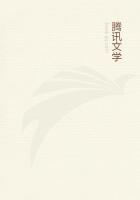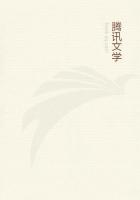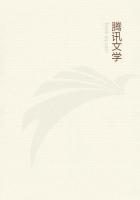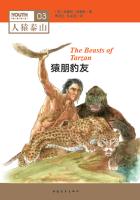When I came to the United States as a lad of six, the most needful lesson for me, as a boy, was the necessity for thrift.I had been taught in my home across the sea that thrift was one of the fundamentals in a successful life.My family had come from a land (the Netherlands) noted for its thrift; but we had been in the United States only a few days before the realization came home strongly to my father and mother that they had brought their children to a land of waste.
Where the Dutchman saved, the American wasted.There was waste, and the most prodigal waste, on every hand.In every street-car and on every ferry-boat the floors and seats were littered with newspapers that had been read and thrown away or left behind.If I went to a grocery store to buy a peck of potatoes, and a potato rolled off the heaping measure, the groceryman, instead of picking it up, kicked it into the gutter for the wheels of his wagon to run over.The butcher's waste filled my mother's soul with dismay.If I bought a scuttle of coal at the corner grocery, the coal that missed the scuttle, instead of being shovelled up and put back into the bin, was swept into the street.My young eyes quickly saw this; in the evening I gathered up the coal thus swept away, and during the course of a week I collected a scuttleful.The first time my mother saw the garbage pail of a family almost as poor as our own, with the wife and husband constantly complaining that they could not get along, she could scarcely believe her eyes.A half pan of hominy of the preceding day's breakfast lay in the pail next to a third of a loaf of bread.In later years, when I saw, daily, a scow loaded with the garbage of Brooklyn householders being towed through New York harbor out to sea, it was an easy calculation that what was thrown away in a week's time from Brooklyn homes would feed the poor of the Netherlands.
At school, I quickly learned that to "save money" was to be "stingy"; as a young man, I soon found that the American disliked the word "economy,"and on every hand as plenty grew spending grew.There was literally nothing in American life to teach me thrift or economy; everything to teach me to spend and to waste.
I saw men who had earned good salaries in their prime, reach the years of incapacity as dependents.I saw families on every hand either living quite up to their means or beyond them; rarely within them.The more a man earned, the more he--or his wife--spent.I saw fathers and mothers and their children dressed beyond their incomes.The proportion of families who ran into debt was far greater than those who saved.When a panic came, the families "pulled in"; when the panic was over, they "let out." But the end of one year found them precisely where they were at the close of the previous year, unless they were deeper in debt.
It was in this atmosphere of prodigal expenditure and culpable waste that I was to practise thrift: a fundamental in life! And it is into this atmosphere that the foreign-born comes now, with every inducement to spend and no encouragement to save.For as it was in the days of my boyhood, so it is to-day--only worse.One need only go over the experiences of the past two years, to compare the receipts of merchants who cater to the working-classes and the statements of savingsbanks throughout the country, to read the story of how the foreign-born are learning the habit of criminal wastefulness as taught them by the American.
Is it any wonder, then, that in this, one of the essentials in life and in all success, America fell short with me, as it is continuing to fall short with every foreign-born who comes to its shores?
As a Dutch boy, one of the cardinal truths taught me was that whatever was worth doing was worth doing well: that next to honesty came thoroughness as a factor in success.It was not enough that anything should be done: it was not done at all if it was not done well.I came to America to be taught exactly the opposite.The two infernal Americanisms "That's good enough" and "That will do" were early taught me, together with the maxim of quantity rather than quality.
It was not the boy at school who could write the words in his copy-book best who received the praise of the teacher; it was the boy who could write the largest number of words in a given time.The acid test in arithmetic was not the mastery of the method, but the number of minutes required to work out an example.If a boy abbreviated the month January to "Jan."and the word Company to "Co." he received a hundred per cent mark, as did the boy who spelled out the words and who could not make the teacher see that "Co." did not spell "Company."As I grew into young manhood, and went into business, I found on every hand that quantity counted for more than quality.The emphasis was almost always placed on how much work one could do in a day, rather than upon how well the work was done.Thoroughness was at a discount on every hand; production at a premium.It made no difference in what direction Iwent, the result was the same: the cry was always for quantity, quantity! And into this atmosphere of almost utter disregard for quality I brought my ideas of Dutch thoroughness and my conviction that doing well whatever I did was to count as a cardinal principle in life.
During my years of editorship, save in one or two conspicuous instances, I was never able to assign to an American writer, work which called for painstaking research.In every instance, the work came back to me either incorrect in statement, or otherwise obviously lacking in careful preparation.
One of the most successful departments I ever conducted in The Ladies'















